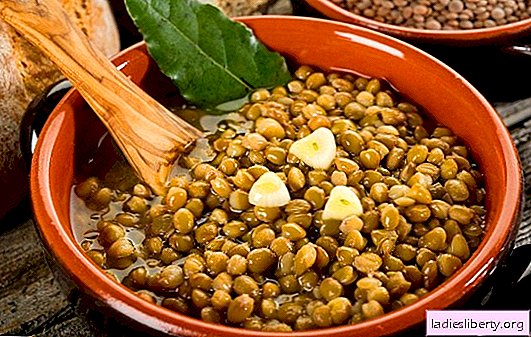
Owners often pamper their pets with something tasty. But they do not always think about the beneficial properties and contraindications of products.
For example, cheese is a treat for many dogs. But is it possible to use it without harm to health?
Can dogs eat cheese
The digestive system of dogs is different from the human. Food that people eat may not be suitable for the animal. But sooner or later there comes a time when the owners will try to give it to the dogs.
Cheese is a staple food worldwide made from fermented milk. Although many people believe that cheese can be harmful, the truth is that most dogs can eat cheese. However, if the dog is lactose intolerant or allergic to milk, this product is best eliminated.
It is necessary to introduce new products gradually. And if the digestive system of the dog does not respond well, then it is worth talking to the veterinarian and changing the diet. With good tolerance of the cheese product, there is no reason to ban it.
Cheese should not be the main part of the diet, but it can be a great treat.
To stay healthy and live a long life, the dog needs to maintain a low-fat, low-sodium diet that is simply incompatible with eating a lot of cheese.
Is cheese a bad food for a dog
Cheese contains a lot of calcium, but it also contains a large percentage of saturated fats, which can quickly lead to weight gain. And since cheese is a dairy product, there is a high probability that it will cause an upset stomach in the dog. In the worst case, diarrhea or pancreatitis will be the consequences.
The main problem with cheese consumption is the potentially high sodium and lactose content. Cheeses and cheese products are usually made for people who prefer a salty taste. Therefore, a sufficient amount of sodium salts is added to the cheese.
Excessive salt in your pet’s diet can lead to high blood pressure.
For the sake of economy, manufacturers often add low-quality raw materials or transgenic fats to cheese. All this can significantly affect the overall health of a furry friend. You should always carefully read the label of the product to verify its benefits.
Dog Cheese Allergy
Carbohydrate lactose is found in all types of dairy products. Some dogs are completely lactose intolerant, and some are allergic to proteins in cow's milk. In this case, an allergy can develop over time, so you need to monitor any changes in the behavior of the animal.
Lactase is a natural enzyme that allows young mammals (including dogs and humans) to efficiently digest lactose. Most adult mammals do not produce much lactase at all, because milk is not the main food.
Cheese contains significantly less lactose than originally milk. And therefore, its use as a treat or supplement may be acceptable for dogs.
The benefits of cheese for dogs
Quality cheese can benefit a pet if it is moderately added to the diet.
The benefits of cheese:
• dietary calcium for teeth and bones;
• fat necessary for energy;
• a variety of vitamins.
Is it possible to give cheese to puppies
Puppies have a rather sensitive digestive system, especially when they are only weaned from their mother. It is important not to burden their stomach with too much new food.
There is no reason to exclude cheese from your puppy's diet, but you should always be careful. It is worth introducing a new product gradually and monitoring the pet’s reaction. If necessary, consult your veterinarian.
Cheese for dogs during training
Cheese will be the perfect reward for a furry friend during training. It’s easy for a dog to learn a new trick if she wants to get what she especially likes. And most dogs love cheese.
Cheese can also be used effectively to mask drugs.
What cheese to choose for a dog
In order not to harm the health of the pet, you must carefully approach the choice of cheese. Shop counters provide a wide range. Cheeses differ in composition, production method and consistency.
Permissible types of cheese
List of allowed cheese types for dogs:
1. Cheddar.
It is one of the most popular cheeses. Hard cheeses tend to have a high salt content because they are commonly used as a preservative. Using a small amount of cheese as a teaching aid should not cause any problems.
2. Cottage cheese.
This variety is an unripe cheese, therefore, it contains less lactose after the fermentation process. Curd cheese usually contains less sodium than harder ones, so this is a big plus.
3. Swiss cheese.
It has a nutty flavor and is very similar to cheddar. Recognized holes are formed by gas bubbles during fermentation, discarded by bacteria as the cheese grows. The lactose content in this cheese is quite low, it can be treated with relative safety.
What cheese is better for dogs not to give
List of cheeses to be excluded:
1. Blue cheese.
2. Roquefort.
3. Parmesan
Blue cheese contains Roquefortin, a potentially fatal toxin for dogs.
4. Cheese with herbs, garlic or other flavors.
Supplements can be dangerous - garlic and onions are toxic to dogs.
5. Bree.
6. Goat cheese.
7. Feta.
Before treating a dog from a common table, you need to think about the possible consequences. New products are introduced gradually and watch for the reaction of the pet.
Many types of cheese do not pose a threat to the overall health and digestive system of the dog. But they must be given in moderation.
Let it be a desired treat for a furry friend, rather than a constant diet. And you always need to control the quality of the product.











